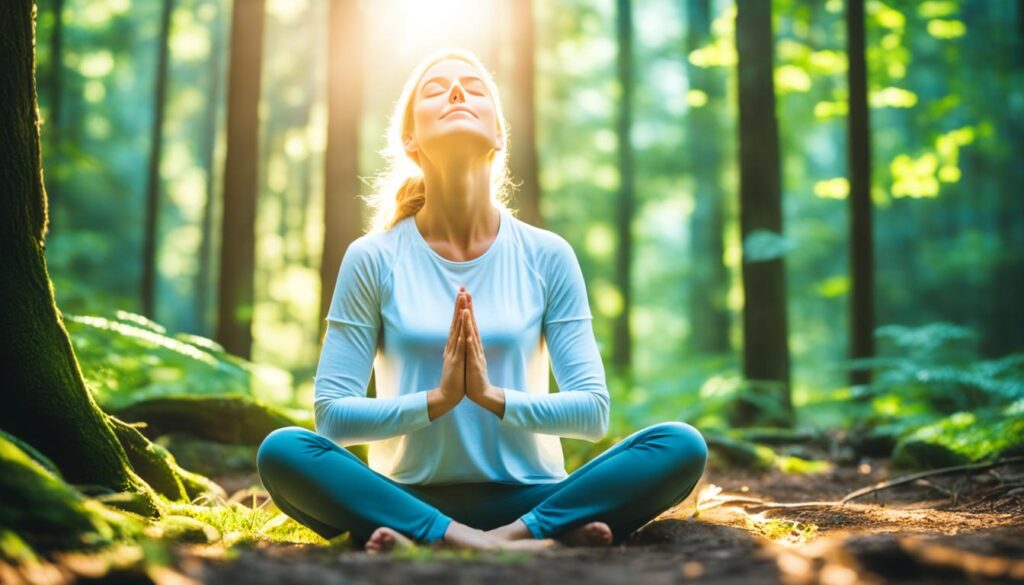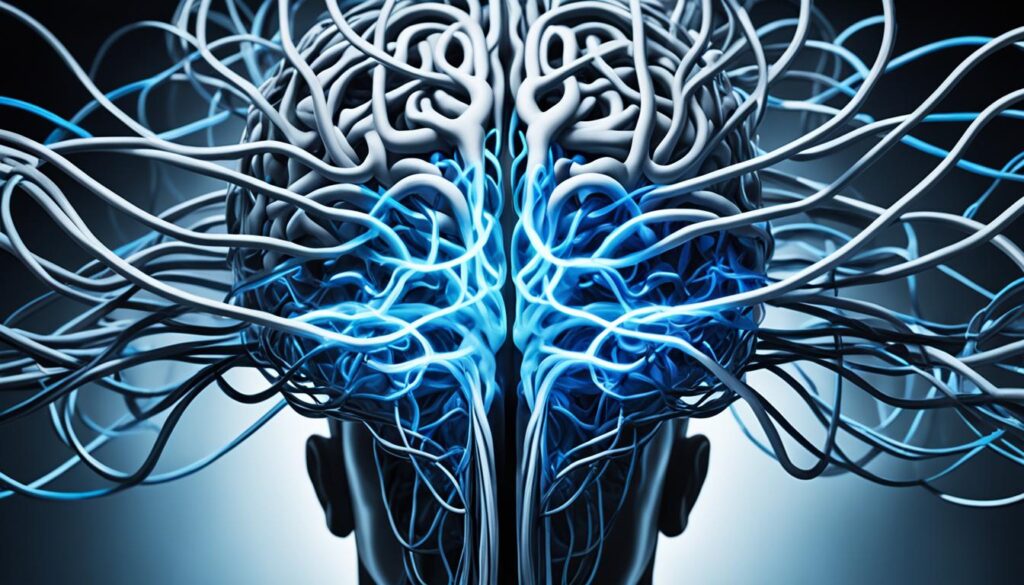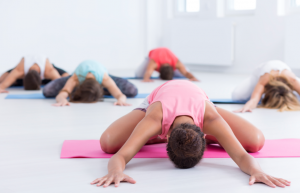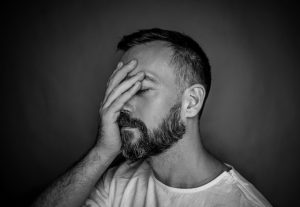Feeling anxious can be overwhelming, affecting various aspects of our lives – from work to personal relationships. We’ve all experienced those moments when anxiety seems to take hold, leaving us feeling helpless. But fear not, there are quick and effective strategies that can help reduce anxiety immediately, providing a much-needed sense of calmness and clarity. After this, you will not search for anything like how to reduce anxiety immediately.
Let me share a personal anecdote. Last year, I was preparing for a major presentation at work. The pressure was mounting, and anxiety started to creep in. My mind was racing, my palms sweaty, and my heart was pounding. It felt like the world was closing in on me. But instead of letting anxiety dictate the outcome, I decided to try something new – a technique called ManthanHub Brain Rewire Therapy.
With the help of ManthanHub, I embarked on a journey to rewire my anxious thought patterns. By engaging with positive affirmations and practising mindfulness techniques, I was able to regain control over my anxiety and find immediate relief. It was truly empowering to see how a simple change in mindset could make such a profound impact on my well-being.
Now, I want to share with you some quick tips and techniques that can help you reduce anxiety immediately. By recognizing the early symptoms of anxiety, identifying anxious patterns and thought processes, acknowledging your feelings, and implementing ManthanHub’s anxiety reduction methods, you can take charge of your anxiety and start living a more balanced and fulfilling life.
Key Takeaways:
- Recognize the early symptoms of anxiety, such as increased heart rate and racing thoughts.
- Identify anxious patterns and thought processes to gain insight into the root causes of your anxiety.
- Acknowledge your feelings without judgment, validating your experiences and emotions.
- Engage in ManthanHub Brain Rewire Therapy through positive affirmations and mindfulness techniques.
- Take charge of your anxiety and experience immediate relief with these quick tips and techniques.
Understanding Your Anxiety and Its Triggers
To effectively reduce anxiety, it is important to have a deep understanding of your anxiety and its triggers. By understanding the root causes of your anxiety, you can develop strategies for immediate relief. This section will cover several key aspects of anxiety, including recognizing early symptoms, identifying anxious patterns and thought processes, and the importance of acknowledging your feelings.
Recognizing Early Symptoms
Recognizing the early symptoms of anxiety is crucial for managing your anxiety effectively. These early indicators can vary from person to person but commonly include increased heart rate, racing thoughts, restlessness, and a sense of impending doom. By being aware of these symptoms, you can take proactive measures to reduce anxiety before it escalates.
Identifying Anxious Patterns and Thought Processes
Anxiety is often accompanied by certain patterns of behavior and thought processes. By identifying these patterns, you can gain insight into the underlying causes of your anxiety. This self-awareness can help you address and challenge negative thought patterns, ultimately reducing anxiety in the long term.
The Importance of Acknowledging Your Feelings
Acknowledging your feelings without judgment is an essential step in managing anxiety. It’s important to give yourself permission to feel anxious and understand that your emotions are valid. By acknowledging and accepting your feelings, you can begin to address them healthily and constructively. Ignoring or repressing your emotions can intensify anxiety, so allowing yourself to experience and process your feelings is key to finding relief.
| Anxiety Triggers | Symptoms |
|---|---|
| Stressful situations | Racing heart |
| Public speaking | Rapid breathing |
| Social interactions | Restlessness |
| Uncertainty | Trouble concentrating |
Immediate Relief: Breathing Techniques
One of the fastest and most effective ways to reduce anxiety immediately is through breathing techniques. Deep breathing exercises can help calm the mind and relax the body, providing immediate relief from anxiety symptoms. In this section, we will explore two powerful breathing techniques: the 4-7-8 method and conscious breathwork.
Deep Breathing Exercises: 4-7-8 Method
The 4-7-8 breathing technique is a simple yet powerful exercise that can quickly reduce anxiety and promote a sense of calmness. To perform this technique, follow these steps:
- Sit or lie down in a comfortable position.
- Close your eyes and take a deep breath through your nose for a count of 4.
- Hold your breath for a count of 7.
- Exhale slowly through your mouth for a count of 8.
- Repeat this cycle for a few minutes, focusing on your breath and allowing yourself to relax.
The 4-7-8 breathing technique helps regulate the autonomic nervous system and activates the body’s natural relaxation response. By practising this exercise regularly, you can train your body to respond to stress and anxiety more effectively.
Focusing Your Mind Through Conscious Breathwork
Conscious breathwork is a mindfulness-based practice that involves focusing your attention on your breath and letting go of racing thoughts. By directing your awareness to the present moment, conscious breathwork can calm the mind, reduce anxiety, and promote a state of inner peace.
To practice conscious breathwork, find a quiet and comfortable space. Close your eyes and bring your attention to your breath. Observe the sensation of the breath entering and leaving your body. If thoughts or distractions arise, gently bring your focus back to the breath. Stay with this practice for a few minutes or as long as you need to experience a sense of calmness and clarity.
Conscious breathwork can be practiced anytime, anywhere, making it a valuable tool for immediate anxiety relief. Incorporate this technique into your daily routine or use it whenever you feel overwhelmed or anxious.

Physical Activities to Alleviate Anxiety Symptoms
Engaging in physical activities can be a powerful way to reduce anxiety symptoms. When we exercise, our bodies release endorphins, which are natural chemicals that help improve mood and reduce stress. Incorporating physical activity into your routine can have numerous benefits for your mental health and overall well-being.
The Benefits of a Quick Run or Brisk Walk
A quick run or brisk walk can be a simple yet effective way to alleviate anxiety. Not only does it get your heart rate up and improve cardiovascular health, but it also helps clear your mind and improve focus. The rhythmic movement of running or walking can provide a sense of calmness and help release any built-up tension or anxious energy.
When you engage in a quick run or brisk walk, try to focus your attention on your breathing and the sensations in your body. Pay attention to the rhythm of your footsteps or the sound of your breath. By bringing your awareness to the present moment, you can create a mindfulness practice within your physical activity, which can further enhance the anxiety-relieving benefits.
Engaging in Aerobic Exercise to Release Tension
Aerobic exercises, such as dancing, cycling, or swimming, can also be highly effective in reducing anxiety and releasing tension. These types of exercises increase your heart rate and promote the production of endorphins, helping to elevate your mood and alleviate anxiety symptoms.
Additionally, aerobic exercise provides an opportunity to focus your mind on the present moment. As you engage in these activities, concentrate on the movements of your body, the rhythm of your breath, and the sensations you experience. This mindful approach can help divert your attention away from anxious thoughts and bring a sense of calmness and tranquillity.
Remember to choose physical activities that you enjoy and feel comfortable doing. Whether it’s a quick run, brisk walk, dancing, or cycling, find an activity that suits your preferences and fits into your daily routine. Consistency is key when it comes to experiencing the long-term benefits of physical activities for anxiety relief.

| Physical Activity | Benefits |
|---|---|
| Quick Run | Improves cardiovascular health Boosts mood Relieves tension |
| Brisk Walk | Clears the mind Enhances focus Reduces stress |
| Aerobic Exercise | Increases endorphin production Elevates mood Diverts attention from anxious thoughts |
ManthanHub Brain Rewire Therapy for Anxiety
At ManthanHub, we are dedicated to providing innovative techniques for managing and reducing anxiety. Our Brain Rewire Therapy offers a powerful approach to help individuals overcome anxiety by rewiring their brains and changing anxious thought patterns. Through targeted exercises and practices, this therapy aims to reprogram the brain’s response to stressful situations, promoting a sense of calm and well-being.
Integrating ManthanHub Positive Affirmations into daily routines is another effective way to reduce anxiety. These affirmations allow individuals to reframe negative thoughts and replace them with positive ones, promoting a more optimistic mindset. By incorporating positive affirmations into your daily life, you can cultivate resilience and build a strong foundation for anxiety relief.
Employing ManthanHub Mindfulness techniques is an essential component of anxiety management. Mindfulness involves being fully present at the moment and accepting one’s thoughts and feelings without judgment. Through practices such as meditation and grounding exercises, individuals can bring awareness to the present and reduce anxiety symptoms.
By combining ManthanHub Brain Rewire Therapy, Positive Affirmations, and Mindfulness techniques, individuals can experience immediate anxiety relief. These techniques can be seamlessly integrated into daily life, ensuring long-term anxiety management and overall well-being.

Comparing ManthanHub Therapy Techniques
| Technique | Benefits |
|---|---|
| Brain Rewire Therapy | – Rewires the brain for anxiety relief – Changes in anxious thought patterns |
| Positive Affirmations | – Reframes negative thoughts – Promotes a positive mindset |
| Mindfulness | – Brings awareness to the present moment – Reduces anxiety symptoms |
Natural Remedies and Lifestyle Adjustments – How to Reduce Anxiety Immediately
Alongside therapeutic techniques, natural remedies and lifestyle adjustments can play a significant role in reducing anxiety immediately. This section will explore various strategies that can provide immediate relief from anxiety symptoms.
Foods that Reduce Anxiety Fast
Eating the right foods can have a positive impact on your mental well-being and help alleviate anxiety. Incorporating certain foods into your diet can provide fast relief from anxiety symptoms. Some foods known for their anxiety-reducing properties include:
- Walnuts: Packed with omega-3 fatty acids, can reduce inflammation and promote brain health.
- Chamomile tea: Known for its calming properties, chamomile tea can help reduce anxiety and promote relaxation.

Incorporating Natural Supplements into Your Diet
In addition to incorporating anxiety-reducing foods into your diet, natural supplements can also provide calming effects. Some natural supplements that have been found to help reduce anxiety include:
- Lavender: Lavender supplements or essential oils can promote relaxation and alleviate anxiety symptoms.
- Valerian root: Valerian root supplements can help improve sleep quality and reduce anxiety.
The Role of Adequate Sleep and Hydration
Adequate sleep and hydration are crucial for maintaining optimal mental health and reducing anxiety symptoms. Lack of sleep and dehydration can exacerbate anxiety symptoms and make it more difficult to cope with stress. It is important to prioritize getting enough sleep and staying hydrated throughout the day to support your overall well-being.
Conclusion
In conclusion, reducing anxiety immediately requires a comprehensive approach that encompasses various strategies. By creating a personalized anxiety response plan, tailored to your specific needs and preferences, you can effectively manage anxiety in the moment. This plan should include a combination of techniques such as deep breathing exercises, engaging in physical activities, and incorporating ManthanHub’s Brain Rewire Therapy, Positive Affirmation, and Mindfulness techniques.
While self-help methods can be effective for many individuals, it is important to recognize when professional help is needed. If anxiety symptoms become severe, persistent, or interfere with your daily life, it may be time to seek the guidance of a mental health professional. They can provide specialized interventions and support to help you manage anxiety effectively.
Lastly, maintaining long-term mental wellness is key to reducing and managing anxiety in the long run. Consistent self-care practices, such as practicing relaxation techniques, maintaining a healthy lifestyle, and fostering supportive relationships, can contribute to your overall well-being. By implementing anxiety management strategies and prioritizing your mental health, you can lead a more fulfilling and anxiety-free life.
FAQ
How can I reduce anxiety immediately?
There are several quick tips you can try to reduce anxiety immediately. Breathing techniques, physical activities, and natural remedies can provide immediate relief from anxiety symptoms. Additionally, understanding your anxiety and its triggers, as well as creating a personalized anxiety response plan, can help manage anxiety in the moment.
What is the 4-7-8 breathing technique for anxiety relief?
The 4-7-8 breathing technique involves inhaling deeply for 4 seconds, holding the breath for 7 seconds, and exhaling slowly for 8 seconds. This technique helps calm the nervous system and promotes relaxation, providing immediate relief from anxiety symptoms.
How can physical activities help alleviate anxiety symptoms?
Engaging in physical activities such as a quick run or brisk walk releases endorphins and reduces stress, leading to a sense of well-being. Aerobic exercises like dancing or cycling can also help release tension and promote mental wellness, providing immediate relief from anxiety.
What is ManthanHub Brain Rewire Therapy for anxiety?
ManthanHub Brain Rewire Therapy involves rewiring the brain to change anxious thought patterns. Integrating ManthanHub Positive Affirmations into daily routines is another effective way to reframe negative thoughts and promote a positive mindset. Employing ManthanHub Mindfulness techniques, like meditation and grounding exercises, can also reduce anxiety and bring awareness to the present moment.
Are there any natural remedies that can reduce anxiety fast?
Yes, certain foods like dark chocolate, walnuts, and chamomile tea are known to reduce anxiety fast. Incorporating natural supplements such as lavender or valerian root into your diet can also provide calming effects. Additionally, getting adequate sleep and staying hydrated are crucial for maintaining optimal mental health and reducing anxiety symptoms.
How do I create a personalized anxiety response plan?
Creating a personalized anxiety response plan involves identifying your specific triggers, recognizing early symptoms of anxiety, and implementing techniques that work best for you. It may include breathing exercises, physical activities, or mindfulness practices. This plan is tailored to your needs and preferences to effectively manage anxiety at the moment.
When should I seek professional help for anxiety?
It is important to seek professional help if your anxiety significantly impacts your daily life, relationships, or overall well-being. If your symptoms persist, worsen, or interfere with your ability to function, a mental health professional can provide the necessary support and guidance for managing anxiety effectively.
How can I maintain long-term mental wellness?
Maintaining long-term mental wellness involves implementing self-care practices, such as maintaining a balanced lifestyle, practicing stress management techniques, and seeking ongoing support when needed. It also involves creating a supportive network, engaging in activities that bring you joy, and prioritizing your mental and emotional well-being.




